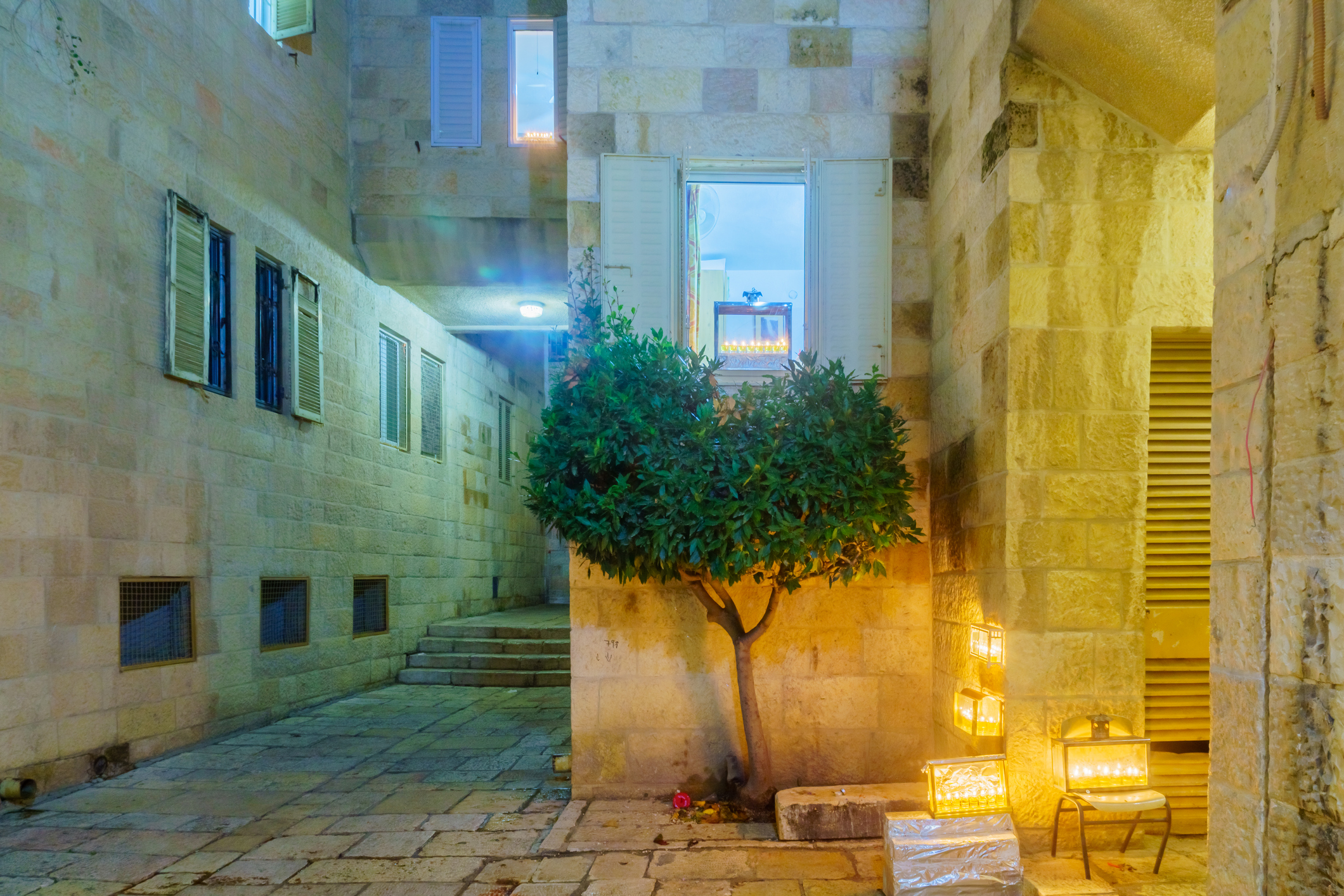What does it mean to have enough? And what does it mean to be blessed? I am thinking about these questions as we move into the holiday of Chanukah, which starts Sunday night. The rabbis of the Talmud tell how the Israelite soldiers came to rededicate the Temple in Jerusalem and rid it of Syrian Greek’s pagan idols. They wanted to rekindle the eternal lamp but found that they only had a little oil. They lit it anyway, and miraculously the oil lasted all 8 days until new oil could arrive.
I’m interested most, in this move of lighting anyway. Of having only a very little, and saying, we’re going to try and see what happens. In its discussion of Parashat Yitro, the Zohar looks at the commandment “You shall not take the Lord’s name in vain.” In exploring it, the Zohar explains that the Talmud has ruled that one cannot make a blessing over nothing – the Talmudic discussion is specifically ruling that you cannot say Birkat Hamazon (the blessings after eating) without having some food leftover on the table.
The Zohar continues this somewhat straightforward discussion of Jewish law on making blessings and brings it into a discussion of abundance and lack. How do we know that we shouldn’t make a blessing on nothing, which would be taking God’s name in vain? The Zohar brings the story of Elisha and a woman, who comes to him destitute and desperate, seeking his help. Elisha asks her, “What do you have in the house?” She says nothing, except a small pot of oil. He says bring it, borrow vessels from your neighbors, and pour from your little pot. The oil just keeps pouring, until she has filled all the vessels and is able to pay back her debt.
This, the Zohar says, is blessing. The flow of oil here is like the flow of God’s presence from the supernal realms into our world. You may think you have nothing, the Zohar is teaching us, but maybe you want to just go back in and check again? Do you really have nothing?
The Chanukah story echoes this. The Israelites, weary from fighting a three-year guerilla war, stumble into the Temple to rededicate it and find that just as before the war, they are lacking, they have nothing. But they go back, they find a little oil, and the oil becomes the source of great abundance.
I remember wandering the streets of the Nachloat neighborhood of Jerusalem during Chanukah many years ago, where Chanukah menorahs are brass and glass boxes with oil wells affixed permanently to the gateways of your front garden for all to see. The lights flickered in the darkness, and I felt the tingle of a hint of miracle.
Somewhere in this story this year I am drawn to the piece about abundance. Where does abundance come from? Where does the feeling of having enough, of even having overflowing blessing come from? As this piece of Zohar teaches us, you cannot make a blessing containing God’s name over nothing. There has to be something there in order to recite a blessing. And yet the key seems to be, ask yourself: Do you really have nothing in the house? When you’re feeling depleted or empty, check for a little bit of oil. Perhaps that can be a place from which abundance can flow forth.

Rabbi Julia Appel is Clal’s Senior Director of Innovation, helping Jewish professionals and lay leaders revitalize their communities by serving their people better. She is passionate about creating Jewish community that meets the challenges of the 21st century – in which Jewish identity is a choice, not an obligation. Her writing has been featured in such publications as The Forward, The Globe and Mail, and The Canadian Jewish News, among others.

